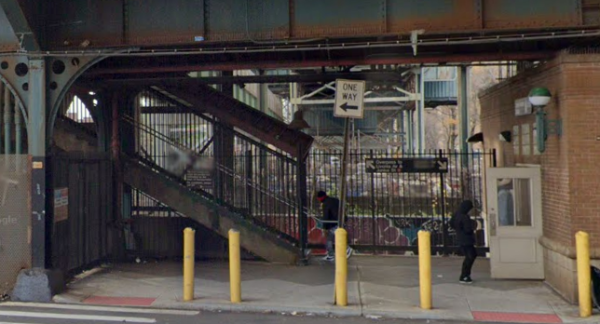
According to News 12, a 35-year-old man was critically injured this morning after being stabbed multiple times at the Brownsville subway station on Livonia Avenue in Brooklyn, NY. The assault took place shortly after 6 a.m. Sunday, July 9, 2023, leaving commuters in a state of panic and disbelief.
According to the local police department, authorities received an urgent call reporting the stabbing incident. Officers swiftly responded to the distress call and arrived at the scene to find the victim suffering from multiple stab wounds. The assailant had already fled the scene, leaving behind a scene of chaos and confusion.
Emergency medical services wasted no time in providing critical care to the victim, who was immediately transported to Brookdale Hospital for urgent treatment. At present, he remains in critical condition, and medical professionals are working tirelessly to stabilize his condition.
Eyewitnesses at the Livonia Avenue train station have been cooperating with the police, providing crucial details that could lead to the apprehension of the suspect. Law enforcement agencies have increased their presence in the vicinity and have called for anyone with information regarding the incident to come forward and assist in the investigation.
While the motive behind the stabbing remains unknown, authorities are treating the incident as a targeted attack. The subway station has been temporarily closed as investigators meticulously comb the area for any evidence that might aid in the identification and capture of the perpetrator.

Today we turn to violent crimes attorney Laurence Banville, Esq., a local New York-based lawyer renowned for his expertise in navigating the complexities of such cases of violent crimes on train stations or subways. Mr. Banville provides valuable insights into the process of seeking justice and compensation when stabbed at a subway.
DM: In light of the recent subway stabbing incident at Brownsville's Livonia Avenue train station, our viewers are curious about the legal recourse available to victims and their families. Could you shed some light on this matter?
LB: Absolutely. When it comes to violent crimes such as subway stabbings, victims and their families may have the option to pursue a civil case against liable parties. In these cases, the primary goal is to seek justice and obtain compensation for the harm suffered.
DM: What parties might be held liable in such cases?
LB: In subway stabbing incidents, potential liable parties may include the assailant, if identified and apprehended, as well as the premises owner or operator responsible for maintaining a safe environment for commuters. This can involve the transit authority, the subway station management, or even security companies tasked with ensuring the safety of passengers.
DM: How can victims and their families proceed with a civil case?
LB: First and foremost, it's essential for victims and their families to consult with an experienced attorney who specializes in violent crimes and personal injury. A knowledgeable attorney will assess the case, gather evidence, and help determine the liable parties. They will then guide the victims and their families through the legal process, including filing a lawsuit, negotiating settlements, or representing them in court.
DM: Are there specific challenges in civil cases related to subway stabbings?
LB: Subway stabbing cases can present unique challenges, as determining liability and establishing negligence can be complex. Gathering evidence, such as surveillance footage, witness testimonies, and expert analysis, becomes crucial in establishing a strong case. Additionally, navigating the legal landscape requires a deep understanding of premises liability and personal injury laws.
DM: What potential outcomes can victims and their families expect from a successful civil case?
LB: A successful civil case can lead to compensation for various damages, including medical expenses, pain and suffering, lost wages, and future rehabilitation costs. It can also provide a sense of closure and hold responsible parties accountable for their actions. Each case is unique, and the outcomes will vary based on the specific circumstances.
 info@legalherald.com
info@legalherald.com